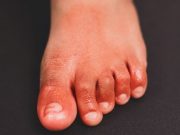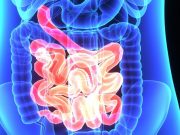CDC: 20.4 Percent of U.S. Adults Had Chronic Pain in 2019
Chronic pain and high-impact chronic pain higher among women, adults ages 65 years and older
Major Neurological Disorders on the Rise in the United States
Burden increasing largely due to aging of the U.S. population
Cognitive Disorders More Common in People Admitted for COVID-19
Genetic variations may put some individuals at higher risk for severe infection
Online Program, Population Health Management Combo Aids Weight Loss
Combo yielded greatest weight loss for obese, overweight patients over 12 months
Dermatologic Manifestations of COVID-19 May Persist
Papulosquamous eruptions, pernio/chilblains last ≥60 days in some patients
Incidence of Cerebrovascular Disease Quantified in COVID-19
1.4 percent of patients with COVID-19 have acute cerebrovascular disease, most often acute ischemic stroke
Trial of Antibody Drug for COVID-19 Stopped for Lack of Effectiveness
Eli Lilly says government is continuing a separate study testing the antibody drug in mild to moderately ill patients
CDC Warns of Multistate Listeria Outbreak
All 10 infected people were hospitalized; one death reported in Florida
USPSTF Issues Draft Recommendation for CRC Screening
Benefit substantial for adults aged 50 to 75 years; benefit moderate for adults aged 45 to 49 years
Risk Factors ID’d for More Severe Depressive Symptoms During COVID-19 Pandemic
Physical, psychological abuse, preexisting health conditions, low social support, low SEP linked to risk



















